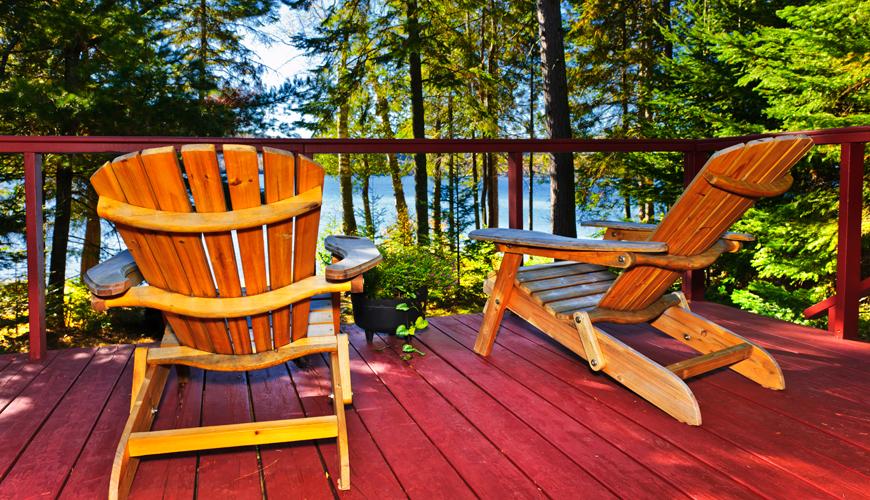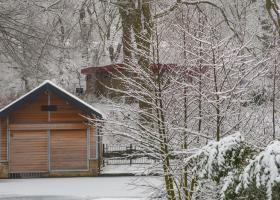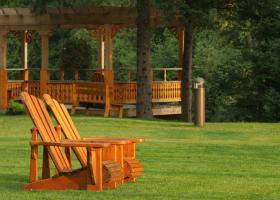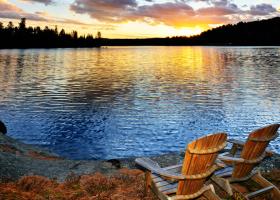How about a Cottage on the Water?

You want to own a cottage, the dream of sitting on a deck overlooking sparkling water, the cry of the loon breaking the silence and you’re not sure of how to realize it? There are a few steps you should consider before making a decision.
The cost you would be looking at is dependant on several factors:
- Cottages close to larger cities—say, within one-and-a-half-hours’ drive—will cost more than more remote ones.
- A cottage in move-in condition will cost more than a fixer-upper.
- You will pay less for a water-access cottage (i.e., where you have to take a boat to get there) then one with road access (with one exception; see #4).
- A private island will be more expensive than a lot on a shared island. It may even be priced higher than an equivalent road-access property in the same area.
- Winterized cottages command higher prices than seasonal places.
- Cottages on rivers are typically less expensive than those on lakes.
- You will pay less for a cottage on a backlot (i.e., one or two streets away from the water) than for a waterfront property nearby.
Some people yearn for a water-access cottage because they have an idealized vision of island life. There is a huge romantic vision that comes with having an island to yourself or sharing it with very few people and if you have never owned waterfront property, an island is thought of as being that bit of utopia with lots of privacy.
But most buyers of cottages without road access are driven by price. For some people, water-access cottages are the perfect entry level.
There are two types of water-access cottages: a single cottage on a small island and one of many cottages on a larger island. A cottage that is the only one on a small island usually sells at a higher price because you are buying an entire island.
There are other advantages to owning a water-access cottage besides affordability. Property lots on islands tend to be much larger and have more shoreline than those on the mainland. This keeps neighbours further away, thus ensuring privacy. The islands are greener, more private and more natural.
Another advantage of cottages reached by water is that property taxes are generally lower because the absence of a road reduces their market-value assessment. Many owners of waterfront properties with road access have seen their assessments rise sharply in recent years.
Water-access cottages tend to attract younger people because of the challenges the properties present. You have to have 'good-knees days', be handy and know how to do things, how to build things and how to be resourceful.
The major inconvenience of water-bound cottages is having to bring all the paraphernalia associated with cottaging over by boat, which often requires numerous trips. This can prove to be a particular challenge if you need to transport renovation materials.
Also you need to buy or rent a boat and know how to operate it – in other words, have your boating license. With a boat, you need a marina where you can dock it when not at the cottage, and this can prove to be a problem as some developers have snapped up some marinas for waterfront condominiums. To save their boat slips, some cottagers have banded together to buy their local marinas as they come on the market.
Most water-access cottages have hydro, but some rely on generators. There are people who prefer water-bound properties that are off the power grid so they can install windmills or solar panels. In addition, not all water-access cottages have wells or septic tanks. However, composting toilets or electric toilets are good alternatives.
So many things to consider. It comes down to – how badly do you want waterfront and the niceties that come with a cottage on the lake or river despite the challenges and the cost usually involved?!












